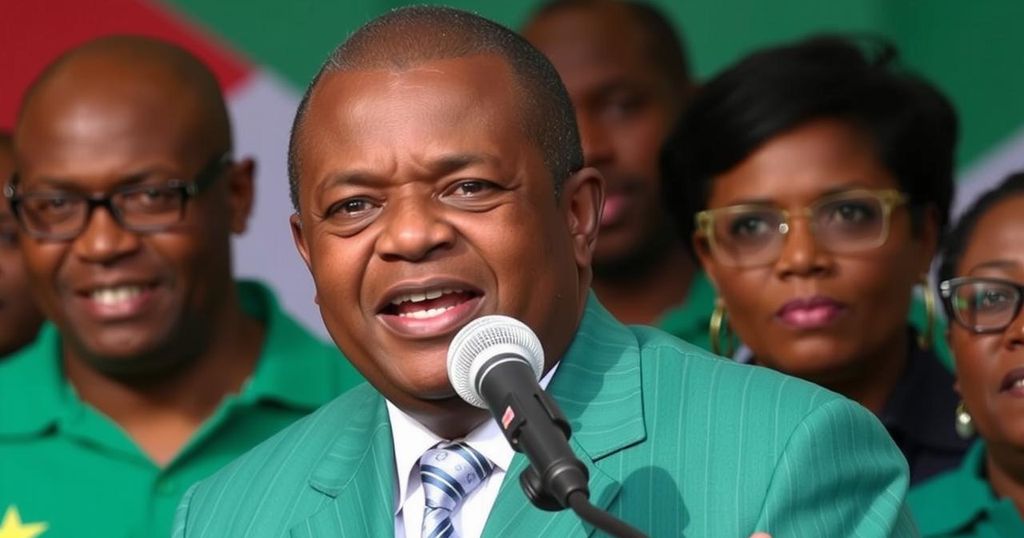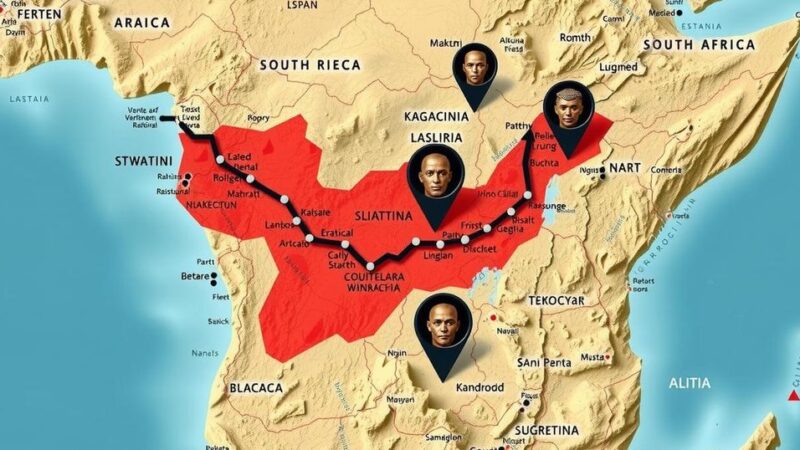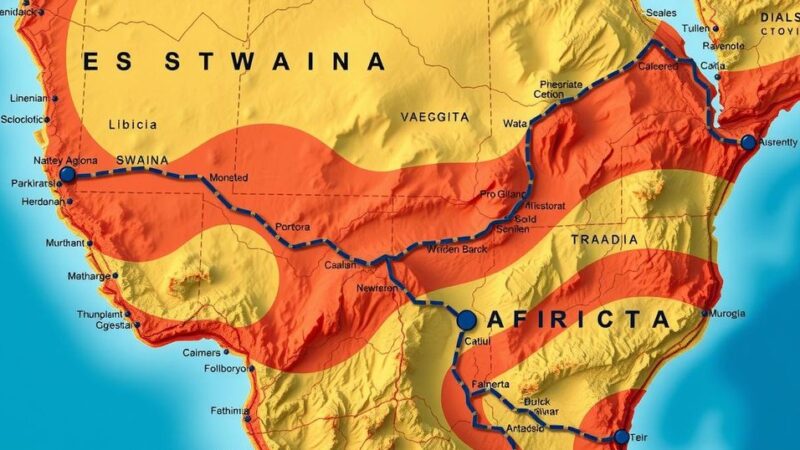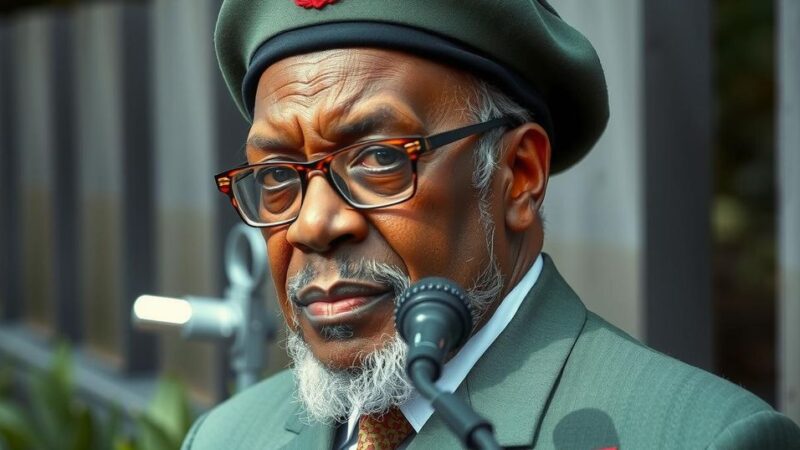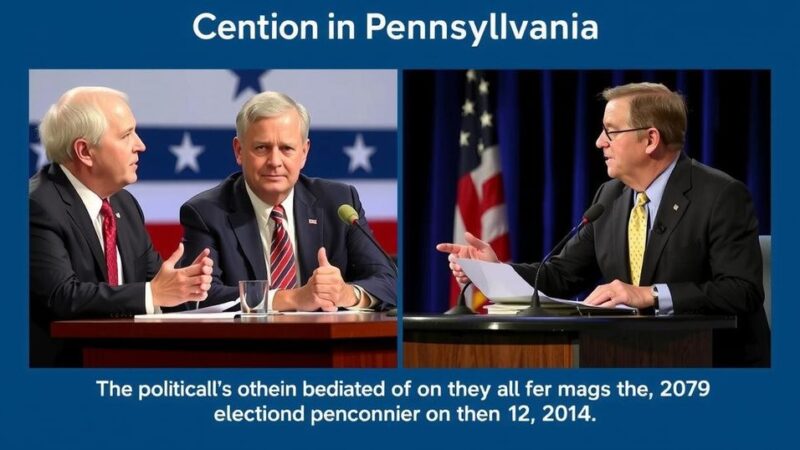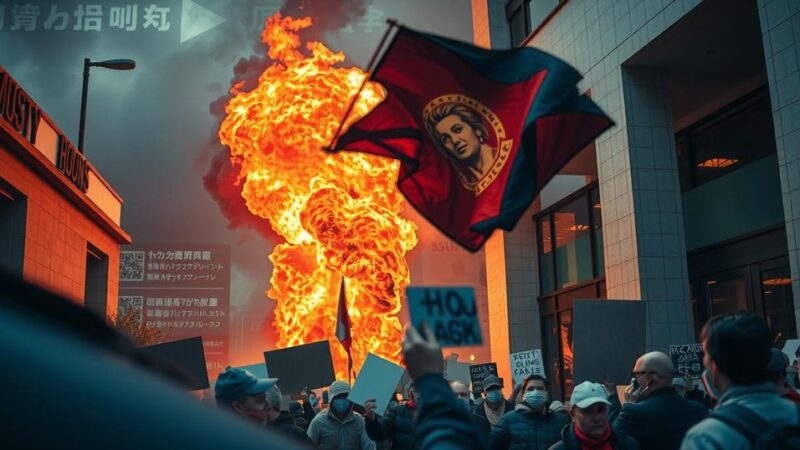Mozambique’s Constitutional Court confirmed Frelimo’s victory in a controversial election, indicating Daniel Chapo received 65% of the vote amid allegations of rigging. Opposition leader Venancio Mondlane criticized the outcome, vowing to continue his fight for electoral justice despite being in self-imposed exile. The situation has led to significant unrest in Mozambique, prompting concerns over possible future violence as international observers call for peaceful dialogue and reconciliation.
On Monday, Mozambique’s highest court affirmed the ruling party, Frelimo, as the victor in the contentious October elections, amid widespread allegations of electoral fraud that have incited violent protests. The court confirmed that Frelimo’s presidential candidate, Daniel Chapo, garnered 65 percent of the vote, a decrease from earlier provisional results that suggested nearly 71 percent. This outcome, extending Frelimo’s long-standing dominance, positions Chapo to succeed President Filipe Nyusi, whose term concludes on January 15.
The opposition, led by exiled figure Venancio Mondlane, received a revised 24.2 percent of the votes but accused the ruling party of manipulating the election results to maintain power. Following the court’s announcement, Mondlane, who has been in exile since late October due to threats, vowed to continue fighting for electoral justice. With the nation on edge and recent violent unrest leading to at least 130 fatalities, the situation remains precarious, as both local and international observers have reported significant electoral irregularities.
In response to these developments, the United States government called for calm and urged all parties to engage in peaceful dialogue and reconciliation. Chapo, in his first address post-announcement, adopted a conciliatory approach, expressing intent to reach out to Mondlane. However, analysts predict that if the unrest persists, Mozambique may witness an unprecedented escalation of violence, reminiscent of the broader discontent seen in Southern Africa recently.
The country has experienced heightened tensions since the October elections, with roads closed and businesses shuttered in anticipation of further unrest. As security forces have clashed with demonstrators, significant economic repercussions have followed, notably affecting trade with neighboring South Africa. Analysts warn that the potential for increased bloodshed looms, particularly if Mondlane mobilizes his supporters in response to the court’s ruling.
The political climate in Mozambique has been historically fraught with tension, particularly following elections marked by allegations of fraud and violence. The ruling Frelimo party has maintained power since the country’s independence in 1975, but challenges from opposition parties, notably through figures like Venancio Mondlane, have been increasingly vocal. Recent elections held in October 2023 saw an unprecedented level of unrest, raising concerns domestically and internationally regarding the stability of the nation’s governance. Understanding this context is crucial for interpreting the current events surrounding the electoral outcomes, the responses from both leading political figures, and the state of civil society in Mozambique.
In conclusion, the confirmation of Frelimo’s electoral victory by Mozambique’s Constitutional Court has intensified tensions within the country, with opposition leaders contesting the legitimacy of the results amid allegations of widespread fraud. The potential for escalating violence remains significant, as the nation grapples with the ramifications of the election outcomes and the responses from both the government and opposition factions. The international community’s calls for calm and dialogue underscore the urgency of addressing these tensions to prevent further unrest and bloodshed in Mozambique.
Original Source: www.wfxg.com

